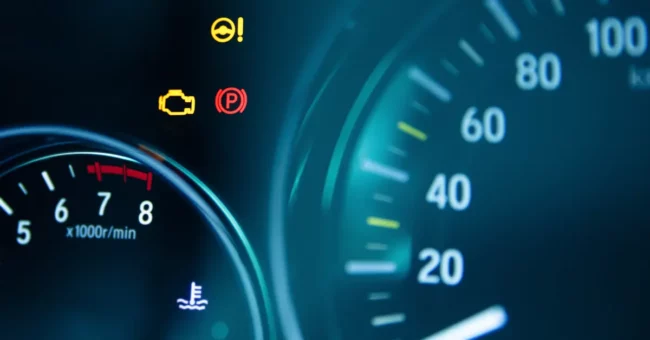
Business travel is an integral part of professional life, and proper reimbursement for mileage is crucial to ensure fairness and financial stability. In the state of Texas, understanding the intricacies of the mileage rate and its reimbursement guidelines is essential for individuals and organizations. This comprehensive guide will delve into the details of the Texas mileage rate, providing valuable insights and actionable information.
What is the texas Mileage Rate?
The mileage rate on a car refers to the reimbursement amount per mile that individuals can claim when using their personal vehicle for business travel. In Texas, the specific mileage rate varies depending on the employer’s policy, with many adopting the IRS standard mileage rate as a benchmark. Factors considered when determining the mileage rate include fuel costs, maintenance, insurance, and depreciation. It’s important for employees to familiarize themselves with their employer’s reimbursement policy to understand the applicable mileage rate.

What is the Texas Mileage Rate?
The Texas Mileage Rate refers to a fixed amount per mile that employers can elect to reimburse their employees for business-related travel within the state. This will take into account various factors such as fuel costs, vehicle maintenance, depreciation and transportation costs
Factors Affecting the Texas Mileage Rate
Many factors affect how Texas miles are calculated. These factors include:
State Economics: The overall economic situation in Texas, including gasoline prices and transportation costs, plays an important role in calculating mileage
Vehicle Maintenance and Vehicle Expenses: All costs associated with vehicle maintenance and the cost of owning and operating the vehicle are considered when determining the mileage
State Regulations: State regulations, especially Internal Revenue Service (IRS) standard mileage, often influence state guidelines. The IRS standard mileage rate serves as the nationally recognized standard for mileage reimbursement.
Reimbursement Guidelines in Texas
While Texas does not mandate a selected mileage price, most employers set their very own reimbursement regulations. These rules have to be fair, obvious, and aligned with triumphing market costs. Many organizations choose to undertake the IRS standard mileage rate as a basis for their reimbursement policies. However, it’s crucial to note that the IRS mileage fee can change yearly, so staying up to date with the modern day updates is critical.
Claiming Mileage Reimbursement in Texas
To ensure a smooth reimbursement process, employees should follow these steps:
Maintain Accurate Records: Employees should keep detailed records of their business-related travel, including the date, purpose of the trip, starting and ending locations, and the number of miles traveled. Accurate records substantiate reimbursement claims and provide evidence of business-related travel.
Familiarize Yourself with Employer Policies: Employers may have specific requirements and deadlines for submitting mileage reimbursement requests. It’s important to familiarize yourself with these policies and adhere to them to avoid any delays or complications.
Submitting Reimbursement Requests: Employees should submit their mileage reimbursement requests according to their employer’s policies and procedures. This may involve completing reimbursement forms, attaching supporting documents, and submitting them to the appropriate department.

What is the most common methods for correcting mileage?
Mileage correction, also known as mileage rollback, is generally considered an illegal act in many jurisdictions, including the United States. It is altering or manipulating the recorded mileage on a vehicle’s odometer to falsely represent a lower mileage than it is. Mileage correction is done for deceiving potential costumers of used cars. For this purpose some individuals use totally untreacable and ethical devices. For example, Mileage blocker from SuperKilometerFilter, which has the ability to prevent the accumulation of mileage from all control units. It can accomplish this task without leaving any traces. Any modified data remains entirely undetectable. However, due to its flawless performance and reliability, it has also been misused for unethical purposes. The manufacturers of these tools do not endorse their unethical utilization. The greatest advantage it offers is that the kilometers no longer accumulate spontaneously after the module has been removed.
Takeaway
Navigating the Texas mileage rate and understanding the reimbursement guidelines is essential for both employers and employees. Staying updated on IRS mileage rate alterations and maintaining precise records promotes fairness and transparency.
Please note, this information is for general guidance only and should not be taken as legal or financial advice. For specific advice, please consult a qualified professional or refer to relevant state and federal regulations.
Latest Posts
- 1
- 2
Is Buying a Car with Over 100k Miles a Good Idea?
April 10, 2024 - 3
Why Are High Mileage Cars So Expensive? – A Guide
April 5, 2024 - 4
Where Is The Mileage Located In A Car?
April 3, 2024 - 5
Whats High Mileage in Vehicles?
March 29, 2024 - 6
What’s The Gas Mileage On A Smart Car: A Comprehensive Guide
March 27, 2024 - 7
At What Mileage Should You Sell Your Car?
March 22, 2024 - 8
Should You Buy a Car with Over 100k Miles?
March 20, 2024 - 9
Should You Buy a Car with 100k Miles?
March 15, 2024 - 10
Understanding ODO Meaning in a Car
March 13, 2024








